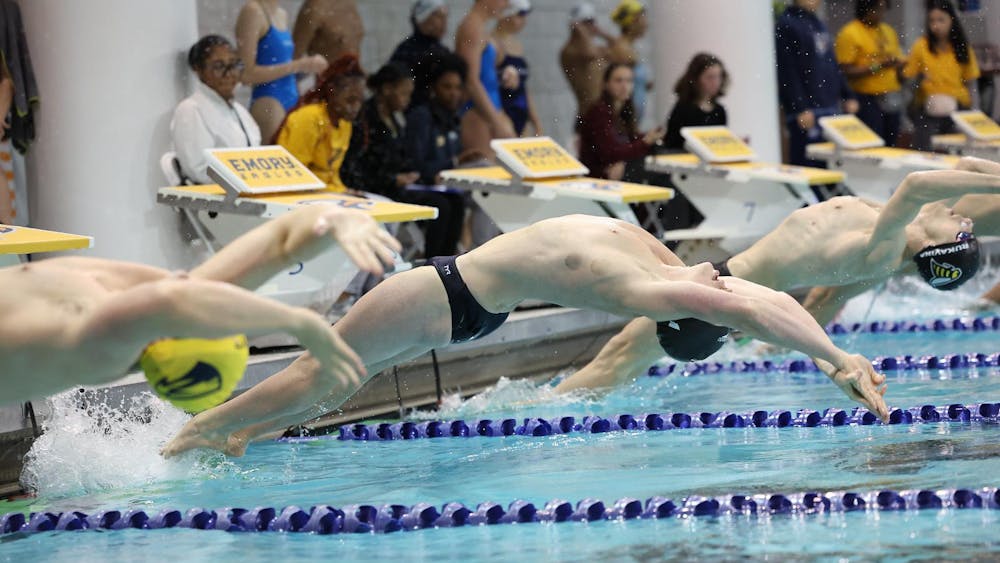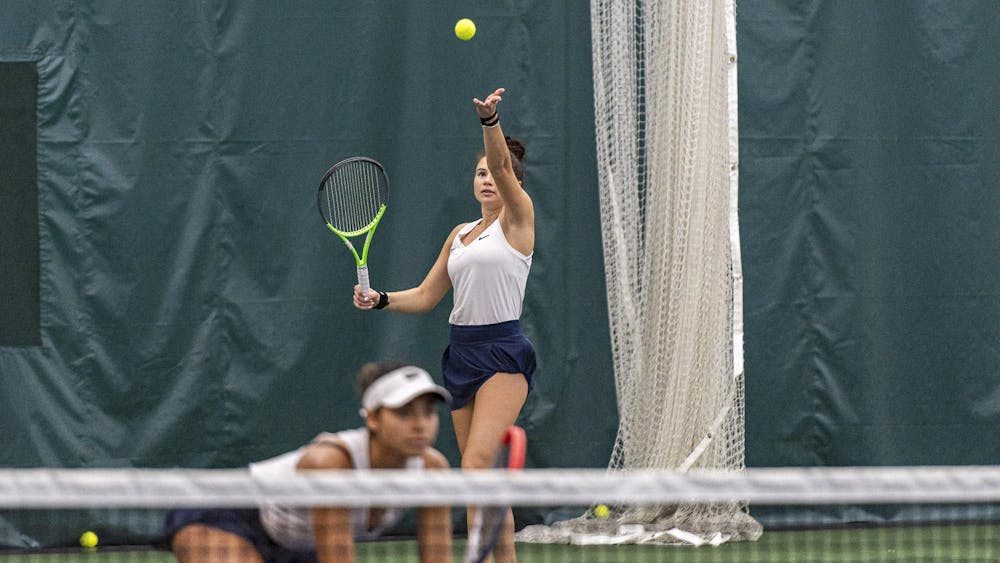
While the fall semester is markedly different from an academic standpoint, athletics, perhaps, have felt even greater the wrath of this pandemic. Although some classes remain in person, Emory Athletics announced July 17 that there would be no participation in varsity, club and intramural sports. Without games, practices or team camaraderie, fall semester student athletes are struggling to cope with this loss.
Emory is one of eight teams in the University Athletic Association (UAA), all of which had their seasons suspended. Each sports team at every one of the UAA schools is greatly affected by this cancellation, even though the decision currently only applies to this semester.
One of Emory Athletics’ foundational mottos is, “athletes are students first and athletes second.” While student athletes engage in several campus arenas, their time is most devoted to their respective sport. Sophomore diver Rosie Gertzman described her pre-COVID-19 practice schedule as “extremely busy.”
“Before the season begins, we have captains’ practices every afternoon for a few weeks to get back in shape before the season begins,” Gertzman said. “Then, when the season starts, we have official practices every afternoon as well as two to four morning practices a week.”
While the team cannot meet in person, swimming and diving has adopted a situational schedule. Strength and conditioning coaches sent the team different workouts and circuits that can be done individually from home. The team also keeps in touch through weekly Zoom sessions. Gertzman, though happy to connect with her team virtually, believes the activities hold the team accountable but fails to uphold the same environment that in-person practices cultivated.
“The team is using Strava, an app where you can record runs, swims and bikes,” Gertzman said. “It is a great way for people to stay competitive with each other, see how other people are doing and to track progress.”
Club sports have also found creative ways to interact during these unusual circumstances. Emory men’s club ultimate frisbee team, Juice, typically attends five tournaments per semester, with 15 to 20 hours of practice per week, said junior captain Will Johnson. With COVID-19, however, the squad has hit a standstill. Quality time with teammates is imperative to building and maintaining cohesion.
”This season is going to be probably one of the biggest challenges our program has faced,” Johnson said. “However, that is the decision that is definitely in the best interest of the public health and the Emory community.”
An important aspect of many club teams is recruiting new players, which has become exponentially more cumbersome. To combat this challenge, Juice has amped up their social media presence in an effort to expand their outreach. Still, sophomore cutter Alex Wellisch fears the loss of in-person recruitment could hurt the team’s roster.
View this post on InstagramSign up for Emory’s premier men’s club ultimate frisbee team! Interest form in bio!
“After losing a ton of talent from the seniors last year, recruitment is critical,” Wellisch said. “It is now super hard without having a table at Rec the Night and being able to advertise in person.”
For the past two seasons, the women’s soccer team has had a preseason training camp to help familiarize freshmen with the program. Senior midfielder Sam Hilsee said the camp was a great way for older players to meet the new recruits, both on and off the field.
“During down time, there was a lot of opportunity for team building,” Hilsee said. “We lived together in villas and were responsible for cooking different parts of team dinner. It was a really great way to bond and integrate freshmen into the team.”
With players unable to attend preseason camp or practices, the team has struggled to interact the way they’re used to, as first-years are confined to campus and the rest of the team is geographically scattered. The team is still working on ways to make their new members feel more connected to the team and the Emory community.
“This season will be so drastically different than my previous three seasons,” Hilsee said. “But we are trying to find safe ways to make [first-years] feel included in the team and help them get acclimated to Emory life.”
There will be little to no sense of normalcy this fall, and every Emory team will face unprecedented challenges. While the list of obstacles seems unending, Emory athletes attempting to make the best of the situation remain hopeful.
“Something our coaches have said is what makes the best teams are the teams who can get through challenges,” Gertzman said. “Being separated is hard, but it is forcing us to find creative ways to interact with each other and create that sense of community.”





